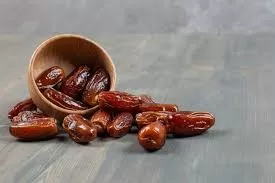Madrid, Spain – A groundbreaking study presented at the European Association for the Study of Diabetes (EASD) annual meeting, held from September 9-13, has revealed important insights into how childhood diet may influence the risk of developing type 1 diabetes (T1D). According to the research, led by Professor Suvi Virtanen from the Finnish Institute for Health and Welfare, certain foods such as fruits, oats, and rye are associated with a higher risk of T1D in children, while berries like strawberries and blueberries appear to offer protective effects.
T1D is a chronic autoimmune condition in which the immune system mistakenly attacks and destroys the insulin-producing cells in the pancreas, leading to insufficient insulin production. The condition requires lifelong management and can result in serious complications, including heart disease, nerve damage, kidney problems, and reduced life expectancy. Despite ongoing research, the exact trigger that prompts the immune system to attack remains elusive. It is believed to involve a combination of genetic susceptibility and environmental factors, including diet.
With T1D cases on the rise worldwide, the findings have profound implications for understanding the role of diet in the development of this condition. The number of T1D cases globally is projected to double by 2040, with Finland experiencing the highest incidence rate—52.2 cases per 100,000 children under 15, compared to significantly lower rates in the 1950s.
Professor Virtanen emphasized the importance of understanding the environmental factors driving this increase, noting that identifying them could offer new opportunities for prevention. “Type 1 diabetes is a serious condition that requires lifelong treatment and so places a considerable burden on the patient and their family. The rapid increase in T1D in children suggests that environmental factors play an important role in the development of the disease,” she said.
The study tracked 5,674 children in Finland who were genetically predisposed to T1D. Over six years, detailed food records were collected from their parents, monitoring 34 food groups from infancy to early childhood. By age six, 94 children had developed T1D, while another 206 exhibited signs of islet autoimmunity, which significantly increases the risk of T1D.
The results demonstrated that a higher intake of fruits, oats, and rye was linked to an increased risk of developing T1D. Conversely, children who consumed more berries—rich in polyphenols, which may reduce inflammation—had a lower risk of developing the condition. “Berries are particularly rich in polyphenols, plant compounds which may dampen the inflammation that is associated with the development of T1D,” explained Professor Virtanen. She also pointed out the potential role of pesticides in non-berry fruits, which might contribute to the increased risk.
Additionally, other food items, such as oats, bananas, and fermented dairy products like yogurt, were associated with a higher risk of islet autoimmunity. In contrast, cruciferous vegetables, including broccoli and cauliflower, appeared to lower the risk. Importantly, these associations were found to be independent of other dietary factors.
While the findings are promising, Professor Virtanen cautioned that it is still too early to make specific dietary recommendations based on this research. “Many of the foods that we found to be associated with increased risk of T1D are considered part of a healthy diet, and it is important that our results are replicated in other studies before anyone considers making changes to their child’s diet,” she said.
As T1D continues to affect millions of children worldwide, this study opens the door to new potential preventive strategies focused on diet. Further research could help pinpoint the specific components of foods that influence T1D risk, offering hope for new interventions to reduce the burden of this lifelong condition.











